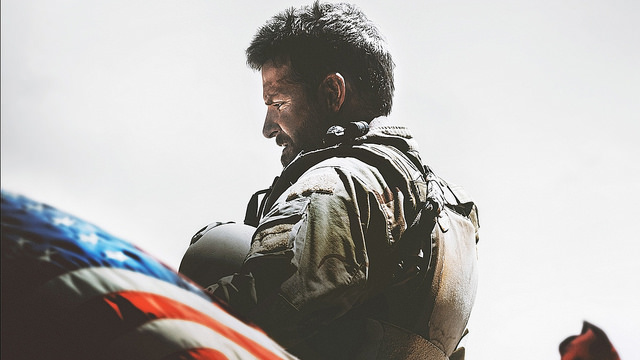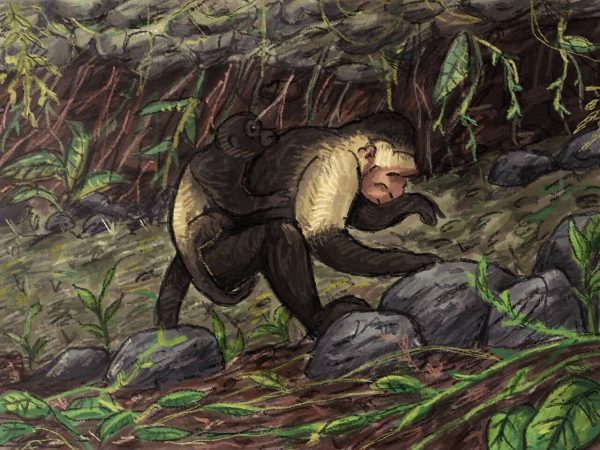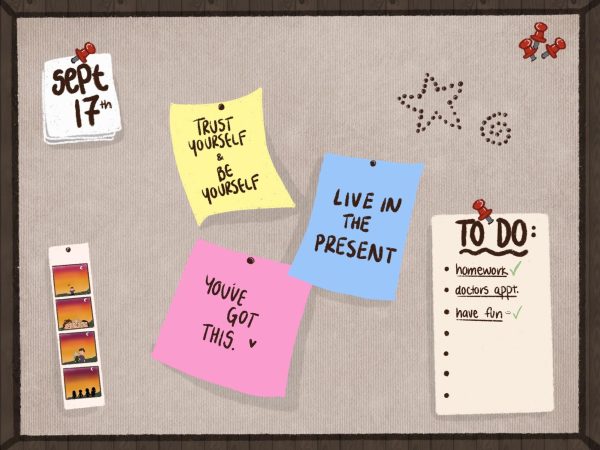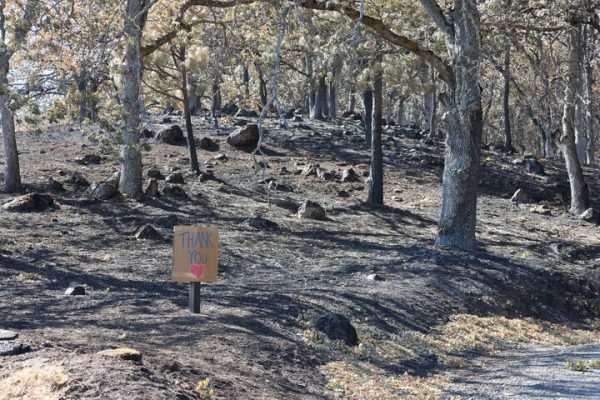Opinion: American Sniper Shows the Effects of War on Soldiers
The controversy of American Sniper and the real meaning of the movie
This movie and article is for mature audience, and also includes spoilers from the movie and Chris Kyle’s story.
Directed by Clint Eastwood, American Sniper has generated a tremendously strong response—both positive and negative—and has sparked conflicting opinions on the real meaning of this movie.
American Sniper is a story about Chris Kyle, a Navy SEAL, who was the most lethal sniper in U.S. military history. He accumulated 160 confirmed kills out of 255 probable kills. He was known as “The Legend,” for his heroism for his country. Going on four tours in Afghanistan, Kyle was killed on U.S. soil when he was trying to help a Marine veteran at a shooting range. Kyle’s story was told through American Sniper, focusing on his time before he became a Navy SEAL, following him on all four tours, and finally examining the traumatic effects that war had on him.
However, some people say that this movie is controversial. With the idea that this movie glorifies war, people believe that Chris Kyle is not a man of heroism, but simply a man who killed other human beings and who deserves no more credit than any other U.S. soldier.
Critics argue that American Sniper shows a simplistic good vs. evil view, making Americans the good and the Muslims the evil of the world. They criticized that the sole purpose to defend this war against the Middle East is with violence, and that is, without question, the only way to come out on top in this war. People also criticized it being about the Iraq War, which is already so controversial by itself. But it was made more controversial not only as a result of the war it is portraying, but its focus on the people that Kyle killed. People have been outraged with the fact that he probably killed innocent people who deserved to live just as much as any other American soldier.
But does that make Kyle any less of a hero by fulfilling his duties as a Navy SEAL?
American Sniper isn’t about glorifying the war on terror anymore than it’s about recruiting soldiers. It is a story about one man told from his perspective and the perspective of those who shared his experiences. It portrays an ugly and frightening war from the perspective of someone who believed deeply that what he was doing for his country was right and just. It not only proves this, but shows the deep wounds of what war has done to our veterans, with PTSD and the results of life-changing accidents. Being away from his family changed the way he interacted with his children and his wife, who most of the time, felt like he was never truly there.
For much of the movie, Kyle is back home, dealing with the effects of PTSD that has taken over his life. There are parts where Kyle sits in his house, his kids running around, staring at nothing but a blank TV screen and the only thing the audience in the movie theater can hear is the sounds of the battlefield. There are other parts where Kyle visits his wounded friends in the hospital, realizing that they will never be able to see, walk, or defend their country again because they put their life on the line.
American Sniper is much more than just showing the skills and achievements that Kyle was able to achieve, and the truths about the Iraq War, but the truths about what just one soldier can go through, and how other veterans helped each other to get through the nightmares of the battlefield. The movie is not about why America should or shouldn’t have been in the Iraq War, but it shows how Kyle was angered by the terrorists attacks on 9/11 and wanted to take action for his country: like many soldiers who may not even have the slightest idea of what they are truly fighting for, but only knowing it is for their country.
Kyle wanted to do something different with his life, and do something for his country. Kyle also was put to the task of having to kill people. The emotion within the scenes where he is set up to kill a child who was putting lives of U.S. soldiers at risk of losing their lives, was as hard on Kyle as it was for any other person to know he had difficult and disturbing tasks that were essential parts of his job. Kyle signed up for the NAVY, knowing that he would have to take lives down the road, even if it was wrong and the people were innocent. Sadly, it is true that not all the people that Kyle killed were members of the Taliban or radical Muslims, but that does not mean that Kyle should be shown as a hero. He saved lives of our soldiers and took out people who the U.S. Military said needed to be killed or captured. With that being an order, Kyle followed.
American Sniper ends with the heart wrenching story of how Kyle was killed. He survived four tours in Afghanistan, only to return to American soil and get killed by another American veteran. Kyle’s goal when he returned home was to help the veterans, the people who our country seems to neglect when they return home and need help. This movie is more than just showing how dangerous Kyle was as a sniper, but the realization of the troubles our veterans bring home with them. Kyle helped veterans before he even helped himself, because he was dedicated to helping our veterans, especially those suffering from PTSD. As reported by Dallas Morning News after a few months after Kyle’s death, friends speak of what Kyle truly loved: “Chris died doing what he filled his heart with passion — serving soldiers struggling with the fight to overcome PTSD.”
Kyle’s story is about more than just the heroism or showing what he did for the U.S. military. It focuses on the truths about the darkness our veterans face, during and after the war. Some are able to get the help they need from their families, friends and doctors, but others are not so lucky. Kyle’s story shows the heart, passion and dedication of one man who dealt with the terrors that war brings to the human mind, and who eventually became more than a “legend.” He became someone who went down in history as a hero for all veterans who needed help when there was nowhere else to turn.

Veronica Horton is a Senior at La Salle and has been in Journalism for two years. Veronica plays soccer for La Salle's Varsity girls team and is a team...












